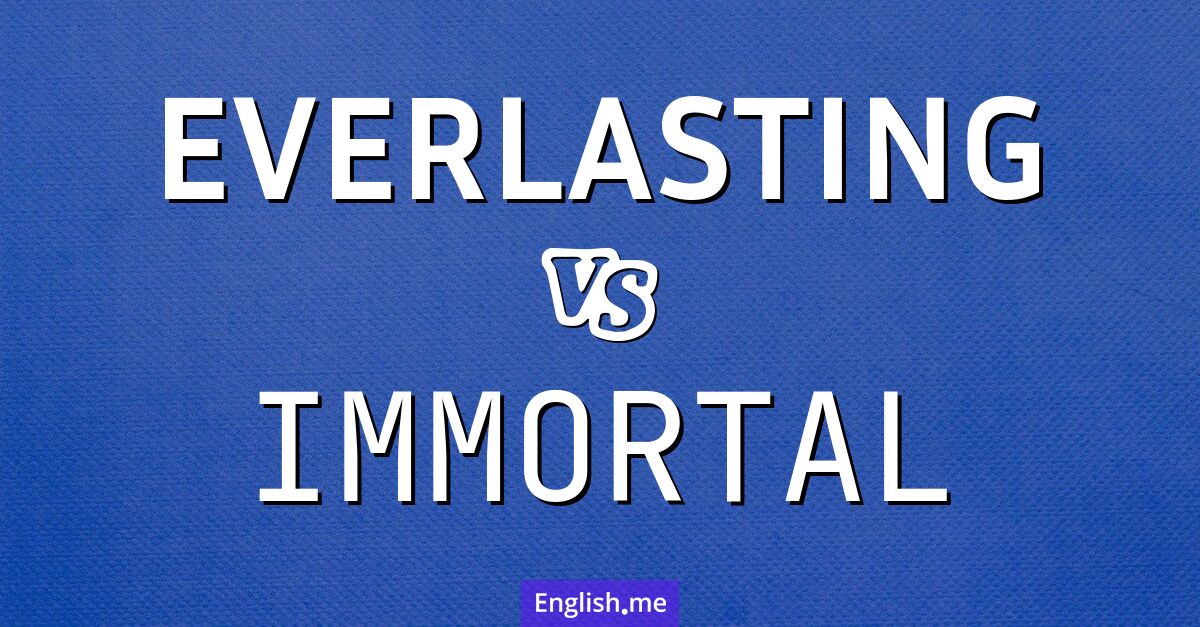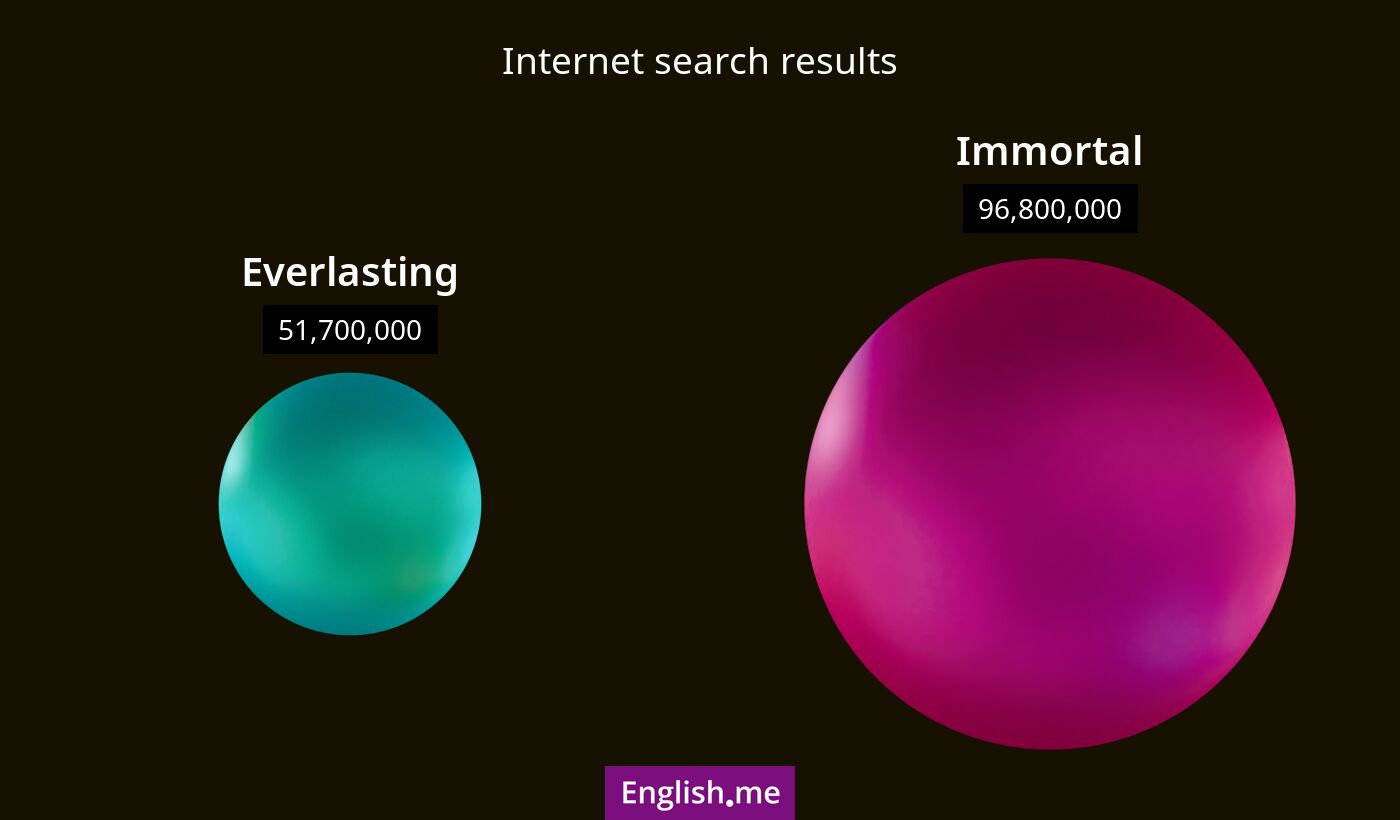Timeless truths: exploring "everlasting" vs. "immortal"
Reviewed and edited by  Anwar Kareem 30/09/2024, 09:50
Anwar Kareem 30/09/2024, 09:50
English.me team member

 What is similar?
What is similar?
Both words describe a state of enduring with no end, often used to describe something that lasts indefinitely.
 What is different?
What is different?
Everlasting generally refers to inanimate objects or non-living concepts enduring forever, while immortal pertains to living beings that do not die.
 Which one is more common?
Which one is more common?

 Examples of usage
Examples of usage
Everlasting- Their love was declared everlasting.
- The bond they formed was everlasting.
- The song's appeal seems to be everlasting.
- The character in the story was an immortal being.
- He hoped his fame would be immortal.
- According to the legend, she was granted immortal life.

 English
English español
español française
française italiano
italiano deutsche
deutsche 日本語
日本語 polski
polski česky
česky svenska
svenska Türkçe
Türkçe Nederlands
Nederlands